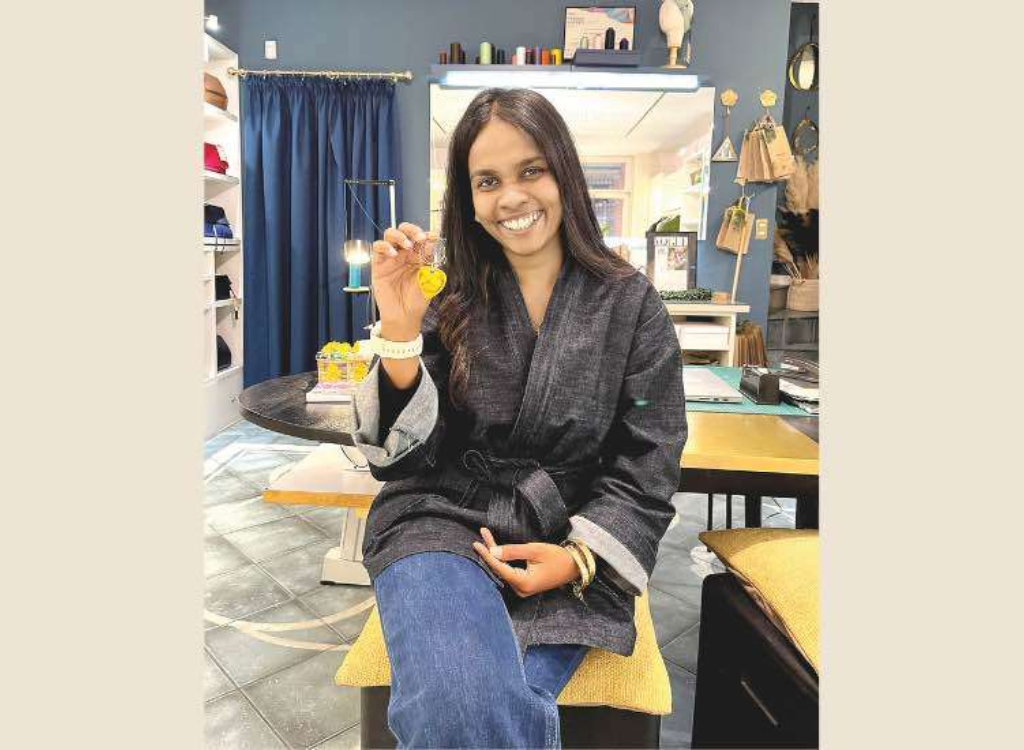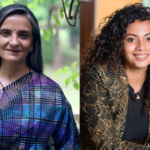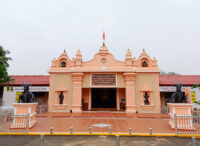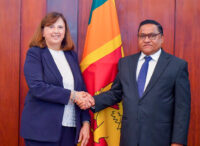At just 31, Rosaria Liyanage has carved a niche as a leather artisan, seamlessly blending traditional Italian craftsmanship with a global perspective.
With a BA in Fashion Design from Raffles Design College and an MA in Fashion and Culture from the University of Bologna, Rosaria’s journey has taken her from academic halls to hands-on artistry.
Her passion for sustainable leatherwork and her Sri Lankan heritage inspired her upcoming three-day master class at AND Fashion School in Negombo. Here, Rosaria shares her journey, craft, and aspirations.
Q How did you learn the art of leather crafting? Was it a family tradition or formal training?
I don’t come from a family of artisans, but my journey began with a deep interest in fashion and culture, which I pursued at the University of Bologna in Italy. During my studies, I specialized in leather craftsmanship as part of my formal internship at Double Trouble a fashion boutique in Bologna, where I learned both the artistic and technical sides of the craft.
Q Can you describe the process of creating a leather piece from start to finish?
It starts with an idea—usually a sketch inspired by something I’ve seen or felt. Then, I select high-quality leather and hand-cut it based on the design. Depending on the piece, I might stitch, emboss, or dye it, adding intricate details. Finally, I finish the piece with polishing or protective treatments to enhance its longevity.
Q What inspired you to bring your leatherworking skills to Sri Lanka through this master class?
As someone who grew up in Italy but has Sri Lankan roots, I’ve always wanted to give back to my home country. Leather craftsmanship is a significant part of Italian culture, and I believe sharing these skills can empower Sri Lankan artisans to create unique products and explore global markets.
Q What specific techniques or skills do you plan to teach during the workshop?
I plan to teach foundational skills like hand-stitching, edge finishing, and the art of embossing, along with advanced techniques like vegetable tanning and crafting high-end leather accessories. I’ll also focus on blending traditional craftsmanship with modern design sensibilities.
Q Will the master class include a focus on sustainable leatherworking practices?
Absolutely. Sustainability is a priority for me. I’ll teach methods like vegetable tanning and share tips on minimizing waste by repurposing scraps into smaller items like wallets or accessories. This aligns with both global trends and environmentally conscious values.
Q What excites you most about conducting this master class in Sri Lanka?
It’s the opportunity to connect with my roots and contribute to a growing artisan community. Sri Lanka is rich in creativity, and I’m excited to see how participants will use what they learn to express their unique artistic voices.
Q What advice would you give to Sri Lankan artisans who want to make a mark in the global leather industry?
Focus on quality and authenticity. Tell a story through your work that reflects your heritage while meeting international standards. Don’t be afraid to experiment and innovate, and always prioritize sustainability—it’s what the world values today.
(Tina Gunawardhana – life.lk)











Leave a comment